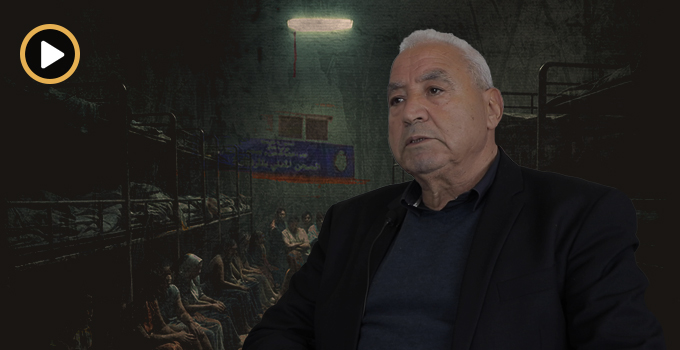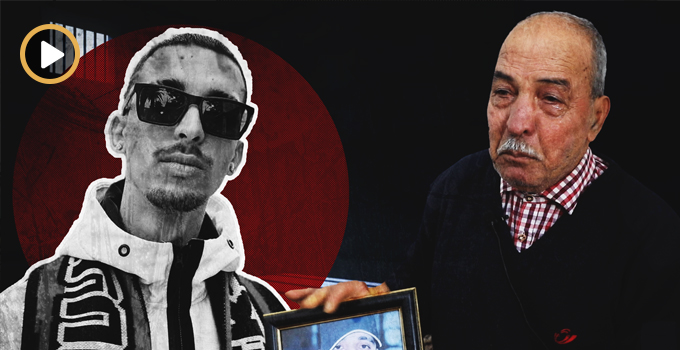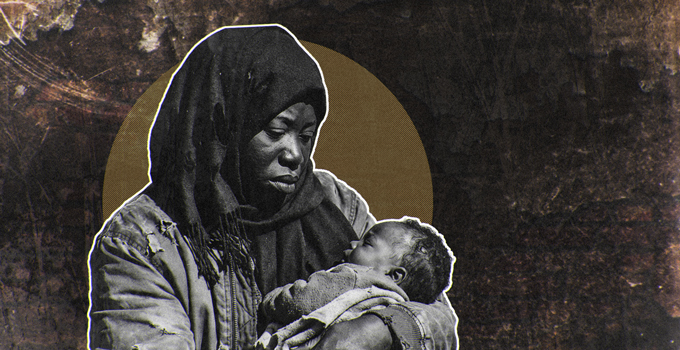
Freedom on the Net: A Global Assessment of Internet and Digital Media
Country: Tunisia
Status: Not Free
Obstacles to Access: 20 (0–25)
Limits on Content: 27 (0–35)
Violations of User Rights: 31 (0–40)
Total Score: 78 (0–100)
Internet Users/Penetration 2006: 953 thousand / 9 percent
Internet Users/Penetration 2008: 1.7 million / 17 percent
Mobile Phone Users/Penetration 2006: 7.3 million
Mobile Phone Users/Penetration 2008: 7.9 million
Freedom of the Press (2008) Score/Status: 81 / Not Free
Digital Opportunity Index (2006) Ranking: 86
GNI Per Capita (PPP): $7,100
Web 2.0 Applications Blocked: Yes
Political Content Systematically Filtered: Yes
Bloggers/Online Journalists Arrested: Yes
Introduction
The internet was first launched for public use in Tunisia in November 1996, and broadband connections were first made available in November 2005. Since traditional media are censored and tightly controlled by the government, the internet has been used as a relatively free and uncensored means of airing political and social opinions, and as an alternative field for public debates on serious political issues. This uncontrolled freedom of expression has led to the creation of an extensive censorship and filtering system.
Obstacles to Access
Internet usage in Tunisia has grown rapidly in the past few years, even as access remains restricted. The government claims that there are 2.8 million internet users in the country, for a penetration rate of nearly 27 percent [1]—the ITU places this figure closer to 1.7 million users or a 17 percent penetration rate [2]—and some 8.6 million mobile-phone subscribers.[3] However, access to information and communication technologies (ICTs) remains difficult for most Tunisians due to high costs and an underdeveloped infrastructure. Tunisia has only one land-line service provider, Tunisie Telecom, and every internet subscriber is forced to first buy a land-line telephone package that includes Tunisie Telecom internet service. Prices for Tunisie Telecom vary from 15 dinars (US$12) for a connection speed of 128 to 256 kilobits per second, to 50 dinars (US$35) for a speed of 512 kilobits to 2 megabits per second. Prices for subscriptions to other internet service providers (ISPs) are similar, although they range as high as 70 dinars for the higher connection speed. Mobile internet access is rarely used, since mobile-phone companies purchase internet access from existing ISPs and the cost remains beyond the reach of most Tunisians. Although there are no legal limits on the data capacity that ISPs supply, the bandwidth remains very low and connectivity is highly dependent upon physical proximity to the existing infrastructure.
During the past few years the government has attempted to increase access to ICTs by rebuilding infrastructure to improve connectivity, encouraging "Free Internet" programs that allow internet access for the cost of an ordinary telephone call, and promoting competition among ISPs to lower prices. In 2004, the government set up an initiative to encourage widespread computer use by removing customs fees and creating the Family PC concept, according to which each family should own a personal computer. Authorities set a price ceiling for computer hardware and established programs offering loans at low interest rates for families to purchase the necessary equipment. The program also provided an internet subscription with every computer sold. Unfortunately, the project did not achieve the intended results because computer prices remained prohibitively high—about 700 dinars, or three times the minimum monthly salary—even with the government incentives. Although many people are unable to connect at home, the government claims that universities, research centers, laboratories, and high schools have a 100 percent connectivity rate, and that primary schools are 70 percent connected.[4] Most Tunisian users access the internet through cybercafes known as Publinets. According to government statistics there are currently 204 Publinets across the country. [5] Yet even this method of access remains prohibitively expensive for most people, and the number of Publinets has fallen steadily over the past few years.
Tunisians enjoy access to various internet services and applications such as free blog-hosting websites. However, the private internet connections of some journalists and political bloggers are often cut due to "technical problems," or their speed is reduced to hamper their ability to view sites and post information. Furthermore, some applications like the video-sharing sites Dailymotion and YouTube have been systematically blocked by the government.[6] Systems such as Voice over Internet Protocol (VoIP) that provide PC to phone calls are prohibited, but applications like Skype and Google Talk, which also provide PC to PC calls, are accessible. The social-networking site Facebook was blocked in August 2008, and although the move was reversed in early September at the request of the president, some groups and video links within the application remain inaccessible.
Tunisia has 12 ISPs. Planet Tunisie, 3S Globalnet, Hexabyte, Topnet, and Tunet are privately owned, while the remaining seven are either wholly or partially owned by the government and tasked with providing internet service to public institutions. The Ministry of Communications Technologies is the main government body for internet technology, and its Tunisian Internet Agency (ATI) is the regulator for all internet-related activities. The law requires all ISPs to obtain a license from the ministry and purchase their bandwidth from the ATI.
Limits on Content
Tunisia’s filtering and censorship apparatus is multilayered and extensive. The government employs three main techniques as part of its internet control strategy: technical filtering, postpublication censorship, and proactive manipulation. The government also issues directives to ISPs concerning four types of material that are deemed undesirable and targeted by the authorities: pornography or sexually explicit material, expressions of political opposition to the government, discussions of human rights in Tunisia (including on the websites of many nongovernmental organizations), and tools or technology that enable users to circumvent the government’s controls. Directives are not issued to address specific events, since ISPs—along with online news outlets, journalists, and bloggers—are expected to be aware of the standing taboos and deal with new developments accordingly.
All of Tunisia’s internet connectivity flows through a single gateway controlled by the ATI. The agency employs SmartFilter software, [7] which allows for key words and phrases to be tagged and filtered throughout the Tunisian internet, including all mail boxes using the .tn country code. [8] Sites that are regularly blocked include opposition sites—such as nawaat.org, reveiltunisien.org, tunisnews.net, and kalimatunisie.com—and the sites of international human rights groups like Freedom House, Reporters Without Borders, Human Rights Watch, and Amnesty International. Many blogs and personal websites are censored and blocked, particularly when they discuss political and social issues. Overseas news outlets such as the British Broadcasting Corporation (BBC) and the New York Times are available online, but filtering technology allows the government to block particular pages within these sites. Users are not informed when a site they have attempted to access is blocked. Instead they receive an error message that essentially attributes the failed access attempt to technical problems.[9] According to the OpenNet Initiative (ONI), this falsification stands in contrast to the practices of other states that use SmartFilter software.[10] Virtual Private Networks (VPN) and Secure Sockets Layer (SSL) connections are prohibited without administrative approval. Authorization to acquire SSL certificates and ports to VPNs requires extra payment and is only given to offshore companies.
Postpublication censorship can take a number of forms. Individual blog entries may be deleted, in most instances within 24 to 48 hours of their posting. In other cases, entire blogs may be shut down by service providers. Search engines, including the forthcoming google.com.tn, filter results to exclude those that are censored or that do not favor the Tunisian government’s perspective.
In addition to preventing certain content from appearing in Tunisian cyberspace, the government has recently begun to proactively shape public opinion online. In 2007 it put together a small group of people to visit websites and actively guide discussion in a progovernment direction. The authorities have also extended their control over traditional media to the online environment by strongly encouraging, but not forcing, news portals to obtain their articles from Tunisia Africa Press, the official state news agency, enabling the official version of events to dominate.
Although the Tunisian blogosphere is still young (effectively started in 2006) and comparatively small (600 active blogs), it serves as a dynamic alternative forum for the practice of free speech. Blogs have begun to play an important role in addressing issues and events that are considered to lie beyond the "red lines" observed by traditional media, such as the labor riots that took place in the Gafsa mining area in early 2008. [11] Videos and press reports were published online on a daily basis, and a blog was created to gather all the information related to this event. Blogs covering red-line issues always find themselves censored eventually, but the deterrent effect is negligible, as bloggers simply move their blogs to another site. Some bloggers have started as many as nine blogs in an attempt to maintain their outlet in the face of persistent censorship. Others have developed more creative techniques. The blog NormalLand discusses Tunisian politics by using a virtual country with a virtual leader, and with various government positions being assigned to other Tunisian bloggers. NormalLand even has its own flag and national anthem modeled after the actual Tunisian versions. [12]
In December 2008, bloggers pushed back against encroaching censorship with a vocal protest against the Tunisian Blog Awards. The awards were intended to honor the vibrancy and diversity of the Tunisian blogosphere, but the organizers of the event enlisted sponsors who insisted on excluding any blog that was deemed to have a "hateful, racist or religious character or those that spread ideas against common morals, the public order, prevailing laws and regulations." This automatically removed from competition many popular blogs, including any that were judged to have been critical of Tunisia’s politics or human rights record. [13] Despite the bloggers’ protest, minority groups and local nongovernmental organizations have not yet started to use the internet as a mobilization tool.
Violations of Users’ Rights
Tunisian law allows the government to block or censor internet content that is deemed obscene or threatening to public order, or is defined as "incitement to hate, violence, terrorism, and all forms of discrimination and bigoted behavior that violate the integrity and dignity of the human person, or are prejudicial to children and adolescents." [14] In December 2003, the authorities adopted an antiterrorism law that is vaguely worded and can be applied to internet use. It created summary procedures for bringing terrorism suspects to trial, and stipulated that these procedures would also apply to those accused of "inciting hate or racial or religious fanaticism whatever the means used."
The government also frequently uses ordinary criminal charges, such as sexual harassment and defamation, to oppress online journalists and bloggers. The most widely known example is the case of the lawyer and human rights defender Mohammed Abbou, who was arrested on defamation charges and sentenced in March 2005 for an online article in which he compared the torture of political prisoners in Tunisia to the abuses committed by American soldiers in Abu Ghraib, Iraq. He was released in July 2007, but he continued to face threats and intimidation, and the authorities have refused to allow him to leave the country. Blogger and online journalist Omar Mestiri was brought to trial on defamation charges in August 2007 for an article he wrote for a French website; the piece was never even available in Tunisia, since the government actively blocks the website. [15] In November 2007, blogger and journalist Slim Boukhdhir was arrested and charged with aggression against a public employee and violation of public morality standards. He was sentenced to one year in prison, [16] but he was unexpectedly released in July 2008 after serving only seven months. [17] In 2008, blogger Ziad el-Heni filed the first-ever lawsuit against the ATI, claiming that the agency practiced illegal censorship and violated his right to free expression by blocking Facebook in August 2008. [18] The case was dismissed by the Third District Court in November 2008, and there is currently no avenue open to appeal this decision.
Anonymity and the right to privacy are nonexistent concepts in Tunisia. While the government does not expressly forbid anonymity and users can post anonymous comments on websites, the government has access to user information through ISPs and can track the comment to the poster. By law each ISP must submit a list of its subscribers to the ATI on a monthly basis. [19] Publinets are also monitored. Under Tunisian law, the managers are responsible for customers’ web-browsing habits and activities. It is common to see the owners asking customers not to visit some sites. Posters displayed on the premises remind users that pornographic and other objectionable sites are prohibited. It is necessary to present an identity card to use Publinet facilities, and the managers have the right to access anything saved to disk by their customers. [20] Users are also required to present personal information prior to purchasing a mobile phone or SIM card, and SMS (text messaging) is monitored for red-line or taboo topics in much the same way as the internet.
Extralegal intimidation and physical violence targeting online journalists and bloggers is common practice in Tunisia. Sihem Bensedrine, editor in chief of the online news site Kalima, has been menaced for years by physical intimidation and smear campaigns; the site itself has been blocked since 1999. Between October 2008 and the end of the year, there were six reported instances of harassment against her employees at Kalima. [21] Ziad el-Heni, the journalist and blogger, has been censored eight times and faces frequent intimidation and occasional physical aggression. Slim Boukhdhir, in addition to having been arrested for his writings, has been repeatedly harassed by state officials; this reportedly included abuse and threats by prison guards during his seven months behind bars. [22] Recently, targeted technical attacks have become a popular tool for intimidating and silencing ICT users. [23] In July 2007, Slim Boukhdhir’s blog was hacked and deleted. In October 2008, an attack on kalimatunisie.com destroyed all content on the site, forcing it to be entirely rebuilt. E-mail hacking is also common; accounts that have no secured access are monitored, and important information may suddenly disappear. These processes are meant to gradually discourage bloggers and online journalists who dare to criticize the government’s policies. Tunisians who wish to explore the internet and visit censored websites are forced to use proxies and anonymizers. However, proxies are continuously "blacklisted" by the Tunisian government, and users risk potential harm if they are caught searching for or using this technology.
[1] http://www.ati.tn/fr/index.php?id=90&rub=27, accessed December 2008
[2] International Telecommunications Union, http://www.itu.int/ICT-D/icteye/default.aspx
[3] http://www.infocom.tn/index.php?id=264, accessed on March 23, 2009
[4] http://www.ati.tn/fr/index.php?id=90&rub=27, accessed December 2008
[5]http://www.infocom.tn/index.php?id=268, Accessed on March 23, 2009
[6] "Video-sharing website Dailymotion blocked,"IFEX, April 11, 2007, http://www.ifex.org/en/content/view/full/82430, accessed on March 23, 2009
[7] SmartFilter technology is provided to the Tunisian government by US company Secure Computing.
[8] "Internet Filtering in Tunisia in 2005: A Country Study", Open Net Initiative, http://cyber.law.harvard.edu/oni-tunisia/ , accessed on March 26, 2009
[9] http://www.nawaat.org/2006/06/13/tunisie-le-scandale-de-la-403-maquillee-en-404/ , accessed on March 26, 2009
[10]"Internet Filtering in Tunisia in 2005: A Country Study", http://cyber.law.harvard.edu/oni-tunisia/ , accessed on March 26, 2009
[11] "Silencing online speech in Tunisia", Global Voices, August 20, 2008, http://globalvoicesonline.org/2008/08/20/silencing-online-speech-in-tunisia/ , accessed on March 26, 2009
[12] "Tunisphere: How to blog about politics without being censored", Global Voices, February 27, 2007,http://globalvoicesonline.org/2007/02/27/tunisphere-how-to-blog-about-politics-without-being-censored/ , accessed March 26, 2009
[13] "Furor over Tunisian Blog Awards Censorship", Global Voices, December 14, 2008, http://globalvoicesonline.org/2008/12/14/furor-over-tunisian-blog-awards-censorship/, accessed on March 26, 2009
[14] "2008 Human Rights Practices: Tunisia", U.S. Department of State, February 25, 2009, http://www.state.gov/g/drl/rls/hrrpt/2008/nea/119128.htm, accessed on March 26, 2009
[15] "IFEX-TMG Calls For Libel Charges to be Dropped Against Journalist", IFEX, August 21, 2007,http://www.ifex.org/en/content/view/full/85730 , accessed on March 26, 2009 (The case was dismissed after the plaintiff retracted the charges.)
[16] "Journalist given one year sentence in ‘unfair trial’", IFEX, December 11, 2007, http://www.ifex.org/en/content/view/full/88580 , accessed on March 26, 2009
[17] "Journalist Slim Boukhdhir released from Tunisian prison", Magharebia, July 23, 2008, http://www.magharebia.com/cocoon/awi/xhtml1/en_GB/features/awi/features/2008/07/23/feature-01 , accessed on March 26, 2009
[18] "Journalist sues Tunisian Internet agency for censorship", Magharebia, September 15, 2008, http://www.magharebia.com/cocoon/awi/xhtml1/en_GB/features/awi/features/2008/09/15/feature-01 , accessed on March 26, 2009
[19] "2008 Human Rights Practices: Tunisia", http://www.state.gov/g/drl/rls/hrrpt/2008/nea/119128.htm , accessed on March 26, 2009
[20] "Internet Filtering in Tunisia in 2005: A Country Study", http://cyber.law.harvard.edu/oni-tunisia/ , accessed on March 26, 2009
[21] "Smear campaign against Ms. Sihem Bensedrine", International Federation for Human Rights, January 6, 2009,
http://www.fidh.org/Smear-campaign-against-Ms-Sihem , accessed on March 26, 2009
[22] "Tunisia: Relentless campaign against imprisoned blogger and journalists Slim Boukhdhir", Global Voices, March 24, 2008,http://globalvoicesonline.org/2008/03/24/tunisia-relentless-campaign-against-imprisoned-blogger-and-journalist-slim-boukhdhir , accessed on March 26, 2009
[23] "Kalima website targeted; police attack OLPEC secretary general",IFEX, October 14, 2008, http://www.ifex.org/en/content/view/full/97591 , accessed on March 26, 2009




[…] Here are the stats on Tunisia: Status: Not Free Obstacles to Access: 20 (0–25) […]